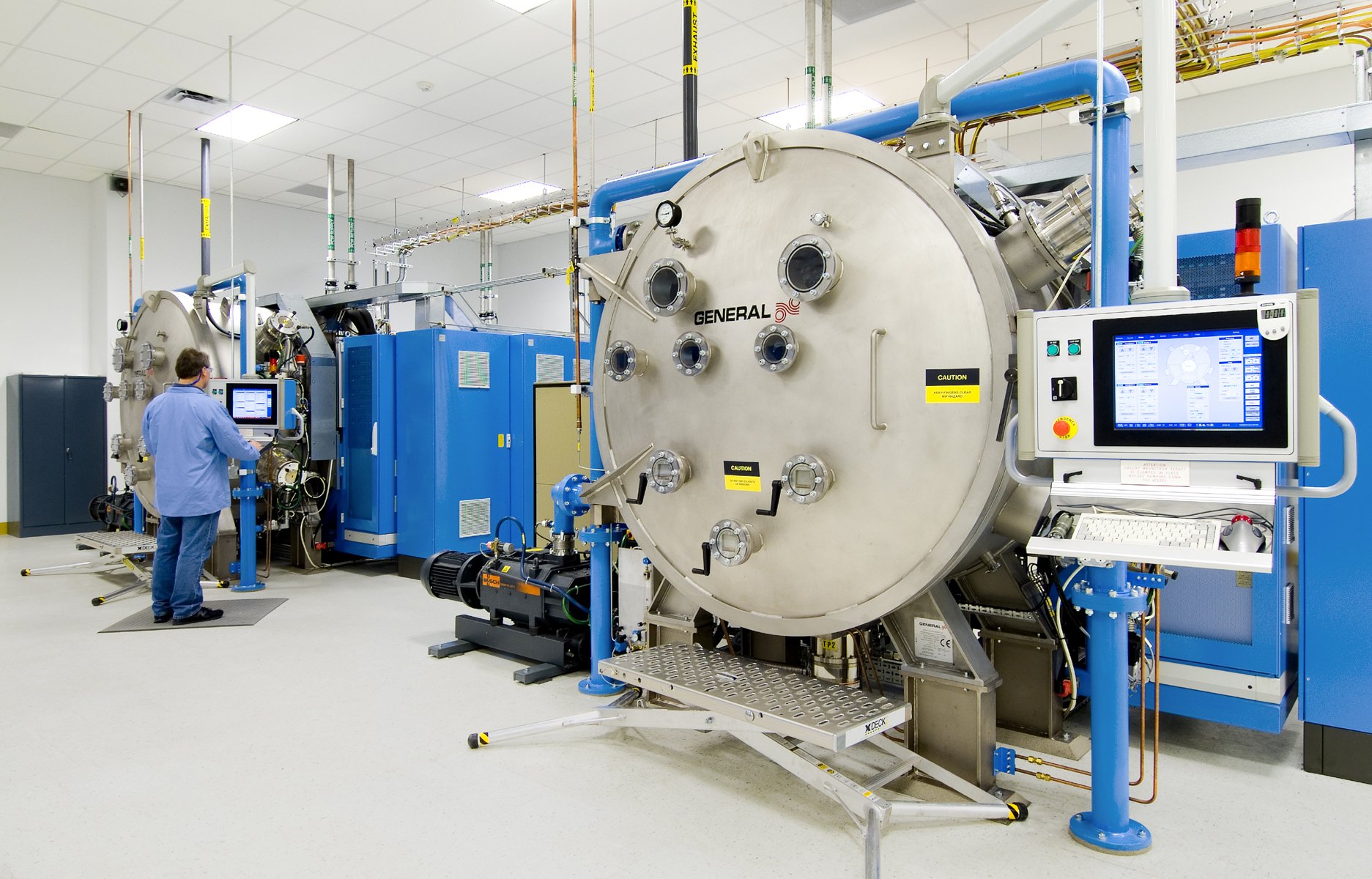Technology
What is Ascent Solar Thin-Film?
Ascent Solar develops and manufactures its cutting-edge CIGS (Copper-Indium-Gallium-Selenide) photovoltaic technology on a flexible, polyimide substrate. These panels convert sunlight into electric power by laying a thin layer of these four elements onto a metalized polyimide backing. As a leader in the CIGS field, Ascent is the only manufacturer commercially producing CIGS solar on a plastic substrate with Monolithic Integration, a key differentiator that puts us ahead of all other solar manufacturers.
Ascent Thin-Film Solar is:
- Lightweight
- Starting with an ultra thin, 25 micron (µ), polyimide base film, the final thickness of Ascent's thin film is 52µ. For reference, a human hair is on average 72µ thick. This ultra thin construction has the benefit of being incredibly lightweight at 68.4 g/m².
- Flexible
- Utilizing a polyimide substrate enables Ascent's finished cell to be extremely flexible with a radius of curvature ~3mm, equal to that of a standard pencil. Ascent's encapsulations are designed to maintain that extreme flexibility.
- Optimized for Application
- Ascent thin film modules can be packaged for any environment, allowing customization that aligns with customer needs.
Lightweight
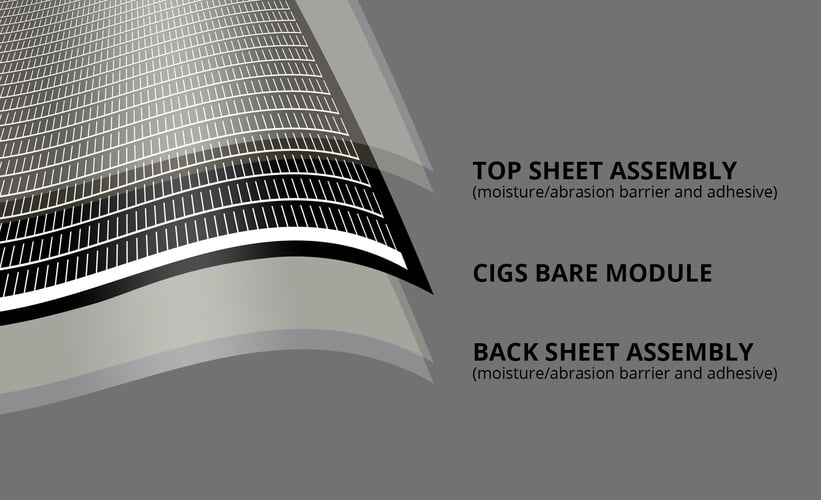
Flexible
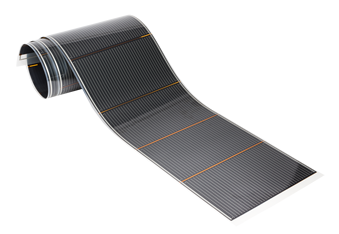
The metric that matters: Specific Power
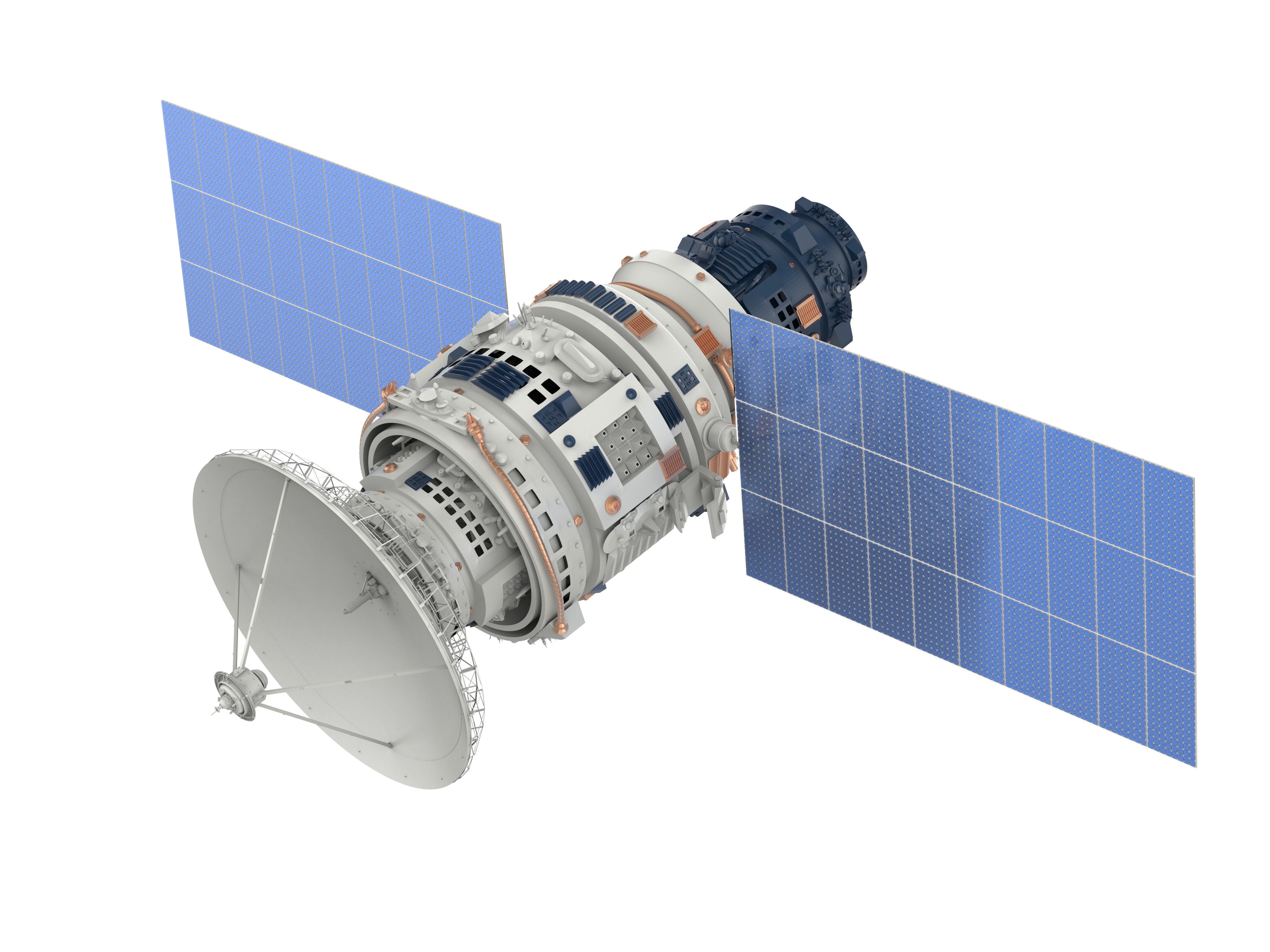
Highest Specific Power Solar Technology
Ascent's PV Outperforms the Competition
Specific Power refers to a power-to-weight ratio for a system or component, specifically watts per kilogram. This rate is the most important factor for solar applications where where overall array mass is crucial, such as those in the Aerospace sector.
At 450 w/kg (AM 1.5) Ascent's specific power outperforms alternative technologies.
The importance of Monolithic Integration
Ascent Solar is the only solar manufacturer producing thin-film modules that are durable, flexible, lightweight, and deliver Specific Power no other thin-film provider can match. Monolithic Integration (MI), the patented manufacturing process of our solar cells, provides physical durability and reduces overall cell and system part count resulting in higher performance and reduced risk. MI enables modules and arrays to have a specific footprint and power output with custom options for voltage and current. Our solar technology will not crack or shatter upon impact and continues to operate if damaged and in cloudy or overcast conditions.
Ascent Solar PV with Monolithic Integration results in:
Durability
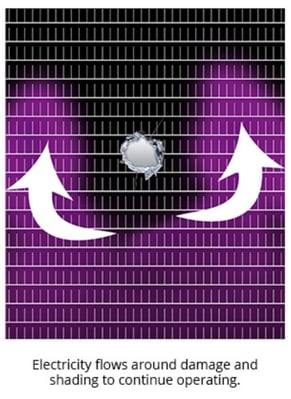
The patented design of each cell allows power to be collected at more points within the solar module.
More collection points results in system redundancy and unchallenged durability. Ascent's PV will continue to generate power in the event of surface damage or partial light conditions.
Risk Reduction

Eliminating excessive connection points and the overall number of parts in each cell and array, there are fewer potential points of failure, making Ascent's PV an elegantly simple power solution.
Custom Outputs
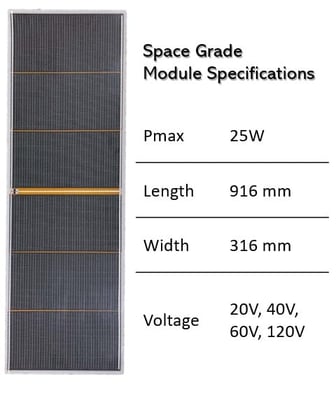
Ascent's 25W modules are available with 20V, 40V, 60V and 120V output options, without changes to the unit dimensions.
All modules are optimized to meet customer power, size and environmental requirements.
Technology Comparison
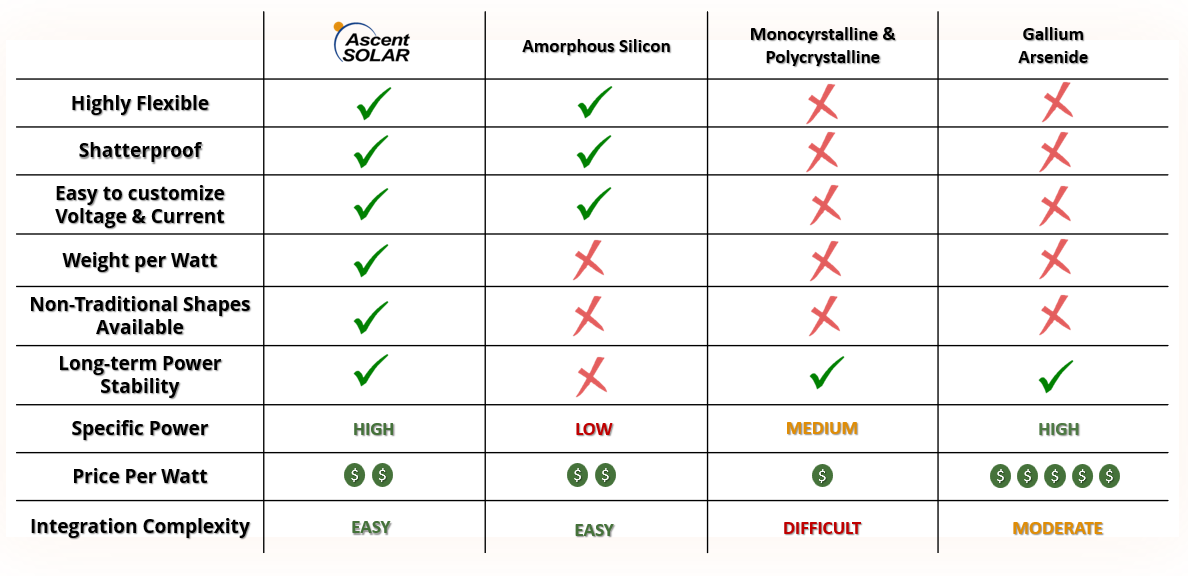
Ascent is the Future of Thin-Film PV
Perovskites
The Ascent Solar's R&D and Operations teams are continuously investing in the performance of our thin film products. A key area of investment has been perovskite integration. We are actively translating our significant perovskite patents pending from our R&D lab to the production floor.
Perovskites are a class of materials that share a similar crystal structure (ABX3), and which display a myriad of exciting properties like superconductivity, magnetoresistance and more.
Ascent is actively partnered with cutting edge perovskite developers to support Department of Energy objectives for the advancement of thin-film technology. Proposed improvements are enabled by Ascent's CIGS technology and expertise.
We believe that these materials, combined with Ascent's existing technologies, will provide stair step increases in photovoltaic performance.
